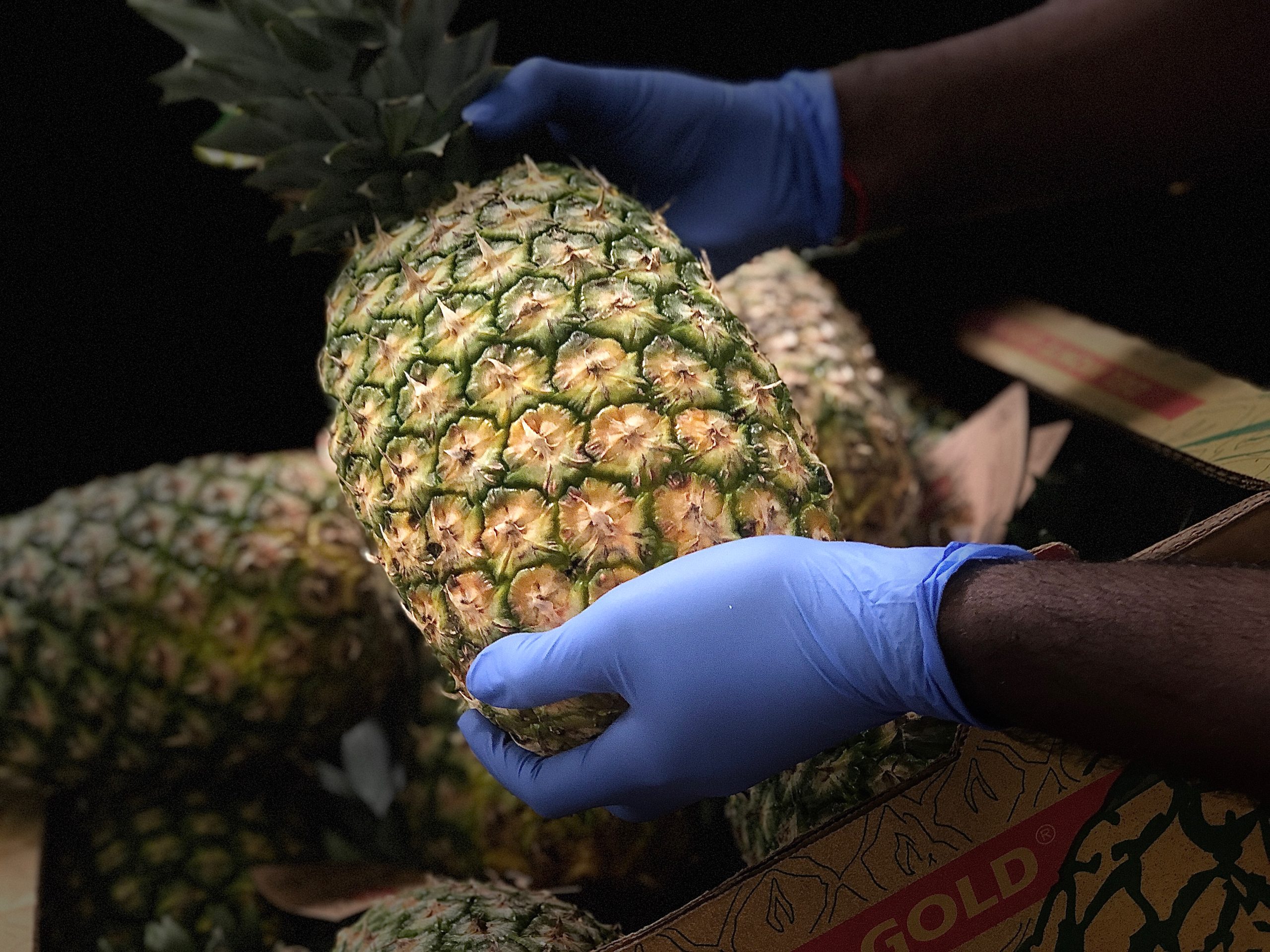Learn the key actions how a leading pineapple importer revolutionized their supply chain with cutting-edge technology.
Claudia Ochoa | Reading time: 10 minutes
Table of Contents
The Struggle is Real:
Managing a Pineapple Empire
Chestnut Hill Farms isn’t your average fruit distributor. As a global leader in premium pineapples, they manage a complex supply chain, spanning continents and delivering to countless markets. But with success comes growing pains, and Chestnut Hill Farms faced challenges in eliminating human errors, maintaining their efficiency and regulatory compliance.
Chestnut Hill Farms, a prominent pineapple importer, faced significant hurdles in managing a complex supply chain. The company relied on separate systems for operations and finance, leading to inefficiencies in estimating operation’s real profitability, time-consuming traceability data management, and delayed decision-making.
With the U.S. food safety regulations becoming increasingly stringent, Chestnut Hill Farms needed to ensure complete traceability of each box. These requirements were challenging to meet with their existing system, which was unable to comply.
Embracing Technology
Recognizing the limitations of their existing systems, Chestnut Hill Farms embarked on a quest for an integrated ERP solution. The ideal system would streamline import processes, provide real-time financial insights, and ensure strict adherence to US food safety regulations.
They sought an ERP (Enterprise Resource Planning) system that could be:
- Complete: No time to waste in streamlining operations using different platforms.
- Customizable: Tailored to manage real-time profitability by import operation and fruit boxes traceability.
- Streamlined: reduce manual processes, human errors, and eliminate inefficiencies.
After thorough evaluation, SAP Business One (SAP B1) emerged as the optimal choice for driving their transformation.

SAP Business One HANA for Operational Excellence
Partnering with Celeritech, Chestnut Hill Farms embarked on a transformative journey. SAP B1 became the cornerstone of their inventory operations, seamlessly integrated with import solutions. The transition from container-level to box-level traceability ensured meticulous tracking of each pineapple, aligning with stringent US regulations.
To accelerate decision-making, Chestnut Hill Farms upgraded to SAP HANA, dramatically reducing report generation times from hours to seconds.
Some significant improvements:
- Real-Time Data Access: Chestnut Hill Farms can now retrieve traceability data within 30 seconds, a 99% reduction in time, which has been crucial for meeting U.S. food safety regulations.
- Streamlined Operations: The integration of their systems has eliminated the need for manual processes, enabling quicker decision-making and enhancing operational efficiency.
- Enhanced Compliance: The detailed traceability data now available for each box of pineapples ensures that they meet the stringent requirements of U.S. import regulations.
Nowadays, Chestnut Hill Farms could access crucial data within 30 seconds, a 99% improvement! Gone were the days of waiting 2 hours for high-impact reports.
The Sweet Rewards of Transformation: Real-Time Visibility and Efficiency
- Fruit Traceability: Due to FDA regulations, Chestnut Hill Farms implemented a rigorous box-level traceability system, tracking each box from its origin. This was mandated as each box represented a distinct lot. The FDA’s requirements significantly increased the volume of data required for traceability. Chestnut Hill Farms can now provide complete traceability from origin to sale, meeting regulatory demands with ease.
- Real-time Profitability Insights: They’ve moved from relying on averages to real-time cost calculations for each container, considering multiple local currencies. This provides an accurate and up-to-date view of fruit profitability.
- Import Management in Detail: They can now scrutinize every purchase down to the route, supplier, customer, port, service provider and other levels. This granular data enables Chestnut Hill Farms to optimize shipping lines, routes, and logistics costs without compromising service quality.

- Exceptional Reporting Performance: Despite the increased data volume, our reporting systems have excelled. We now have tools to streamline manual tasks, preventing the need for proportional staff increases to handle the heightened detail demanded by US food regulations, which require box-level traceability. SAP HANA has dramatically cut down report generation times from hours to mere seconds, allowing the team to focus on strategic decisions rather than manual data management.


Technology Stack for Pineapple Import Optimization
- SAP Business One HANA served as the core ERP platform, consolidating purchasing, sales, inventory, and finance into a unified system. It enables the management of multiple countries, currencies, and generates both local and consolidated (US dollar) financial statements.
- Landed Cost Calculation: Provides real-time insight into fruit cost, encompassing rebates, brokerage, promotions, import and local transportation, and more. This allows for accurate cost accounting even before all associated invoices are received.
- EDI Integration: A significant portion of orders from major retail chains are received via Electronic Data Interchange (EDI) and fully managed within SAP.
- Comprehensive Reporting: Offers a suite of inventory and financial reports to support informed decision-making. Data can be exported to tools like Power BI and Excel for customized visualizations, ensuring timely and high-quality data for responding to global import market fluctuations.
A Pineapple Import
Success Story
Chestnut Hill Farms stands as a testament to the power of technology in transforming the pineapple import industry. By embracing SAP B1 HANA, the company has achieved operational excellence, enhanced compliance, and solidified its position as a global leader.
Chestnut Hill Farms is a global recognized leader as importer and distributor of premium-quality pineapples. With decades of experience and a footprint that spans the globe, they manage millions of boxes annually, supplying markets across the United States, Europe, and beyond. Today, they control approximately 10% of the U.S. pineapple market, known for their commitment to quality, food safety, and operational excellence.
Embrace Technology, Reap the Rewards
Chestnut Hill Farms continues to innovate and expand its operations every year. The story of Chestnut Hill Farms serves as a valuable lesson for food import businesses of all sizes. By integrating the right technology and partnering with experts, you can streamline operations, reduce costs, and ensure compliance in a complex and ever-evolving landscape.
Call 911-FoodTECH
Reach me out here for a free consultation and transform your business like Chestnut Hill Farms did. #ERP for food industry
Notes on specific terms:
ERP: Enterprise Resource Planning – a type of software that manages an organization’s resources, such as finances, supply chain, operations, and human resources.
EDI: Electronic Data Interchange – a method of exchanging business documents electronically in a standardized format.
Landed Cost: The total cost of a product upon arrival at its final destination, including the original purchase price, transportation, insurance, duties, taxes, and other charges.
Power BI: A business analytics service by Microsoft that allows users to visualize data and create interactive dashboards.
